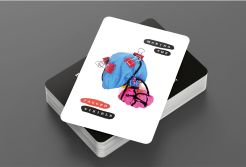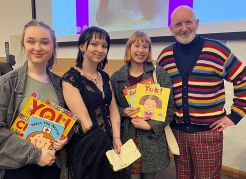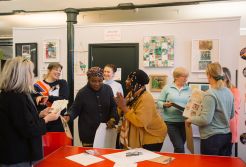8 February 2007
Appliance of sport science
MMU helps GB swim team to Gold
BRITAIN’s paralympic swimmers emerged as heroes from the Swimming World Championships in South Africa after applying MMU science to their training.
Twenty-four gold medals, 14 silver and 14 bronze at the International Paralympic Championships saw Britain top the medals table for the first time in its history.
For Dr Carl Payton, the team’s official biomechanist, it was the highlight of his sport science career which normally finds him teaching undergraduates at MMU’s world-class exercise and sport science base in Alsager, Cheshire.
Carl, a former competitive swimmer, discovered biomechanics when his own swimming coach gave him a sport science book to read in order to improve his performance.
Five-star support
"Rather than saying this is what you need to do to swim better, biomechanics breaks it down into specific movements, explaining why each is important and how precisely they affect your swimming."
Dr Payton and research colleagues at MMU’s five-star rated sport and exercise science department, have worked with the paralympic swimming team since 2000, analysing the swimmers’ techniques and performance.
Some of his support is immediate, based on video analysis and watching from the poolside. Other help is more in depth; kinematic analysis uses high-speed cameras and 3-D images to produce a very detailed picture of motion, speed, acceleration and more.
One of his own innovations, the velocity meter, developed at the department's pool at Alsager, can take 100 speed measurements per second, revealing how speed fluctuates in a swimmer’s action.
Challenging
The fact that the swimmers are disabled makes it even more challenging, he says: "There are biomechanics text-books for able-bodied swimmers, but they are no use whatsoever when working with a swimmer who can’t use her legs.
"Working out the best way for that person to swim and to win is a challenge only biomechanics can answer. That’s what keeps me motivated," says Dr Payton.
"Everyone involved, and that includes sport psychologists, nutritionists, medics, physios and others are delighted with the South Africa result, and we are now looking to Beijing 2008."
For more about sport and exercise science at MMU go to www.cheshire.mmu.ac.uk/exspsci.


